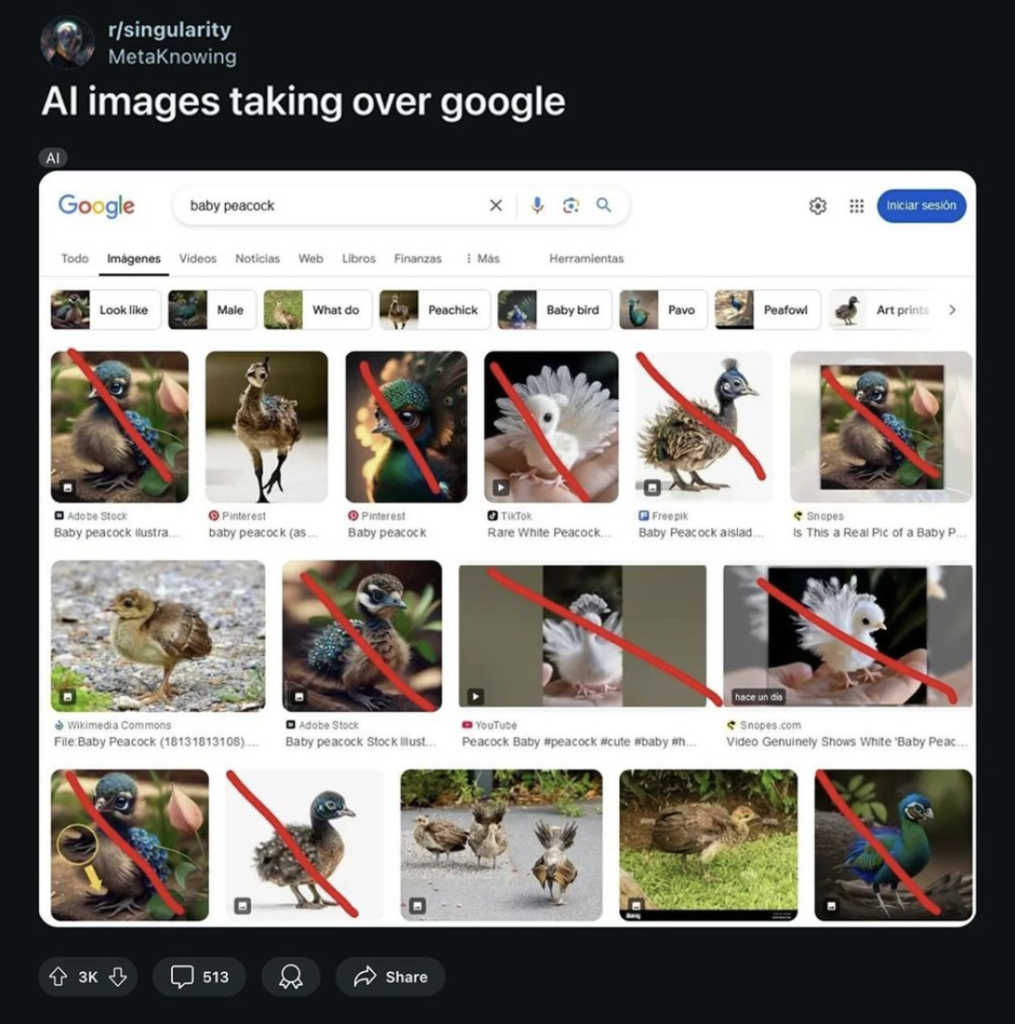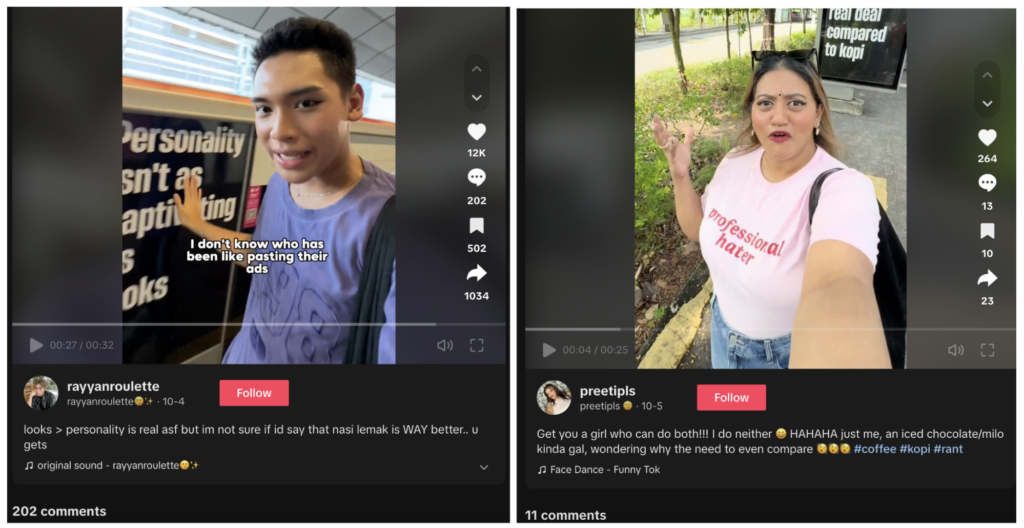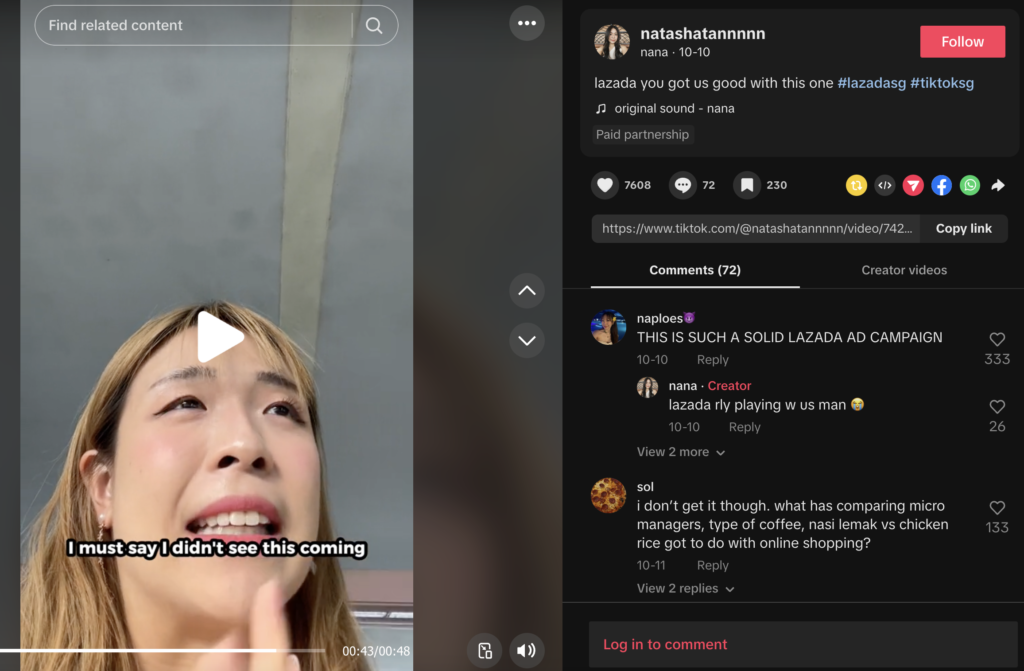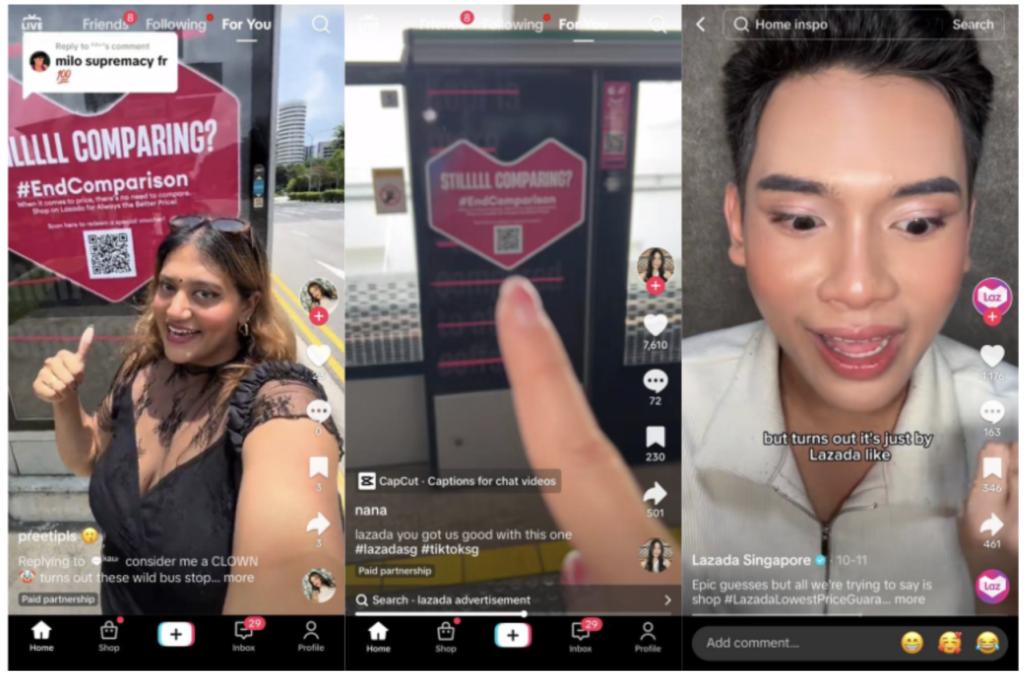Whereas the world is freaking out over what’s actual and what’s not anymore because of AI (cue deepfakes), at the least we’ve been in a position to belief the movies on our social media feeds by content material creators, particularly these with a big following.
Or…can we?

A latest marketing campaign in Singapore that put out a collection of black-and-white adverts to set off commuters on public transport was lately showcased by a number of influencers, who “ranted” concerning the controversial statements.
You’ll have seen these by Ryanroulette, Preetipls and Natashatannnnn “ranting” about these adverts on their social media as nicely to their mixed follower rely of over 250k on TikTok alone.
At first look, it seemed like one in all their typical speaking head movies sharing their unfiltered ideas.

Then the reality got here out.
Within the newest reveal, these influencers who shared movies about these black and white adverts have come out to speak about how they had been so ‘silly to fall for these adverts by Lazada’.

Significantly? You didn’t see this coming?

This time, they remembered to label their put up as a paid partnership. As the reality got here to mild, we now know that these adverts had been a part of Lazada’s newest guerrilla advertising ways, and the influencers had been paid to unfold consciousness about it.
However how are you going to act all stunned and declare you “didn’t see this coming” once you had been engaged on a Lazada marketing campaign proper from Day 1?
In case you assume this reminds you of the Gushcloud-Singtel saga that occurred in 2015, you’re not the one one. For these of you who’ve been round on the Web for longer, you could keep in mind how influencers had been employed again then, to have interaction in a smear marketing campaign in opposition to the opposite native telcos (M1 and Starhub) and rant concerning the poor connectivity and repair…solely to proclaim publicly afterward that they “had sufficient” and was switching to a greater supplier a.okay.a. Singtel.
It appeared at first that they managed to tug the wool over their followers’ eyes…till Xiaxue uncovered the entire facade by revealing proof that the bloggers had been paid and instructed to disparage the opposite telcos in a bid to advertise Singtel. The incident brought about a giant hoo-ha, resulting in the (then) Infocomm Improvement Authority (IDA) to analyze whether or not Singtel breached the Telecom Competitors Code and noticed Singtel’s group CEO problem a public apology to Singtel and M1. Shortly after, the Promoting Requirements Authority of Singapore (ASAS) rolled out pointers that paid promoting on social media are to be clearly disclosed.
However as we’ve seen in recent times, not each influencer or content material creator abides by the rules.
The truth is, Ryanroulette and Preetipls launched their preliminary video on the secretive Lazada adverts as natural content material, with out the “paid partnership” label. It was solely later that they revealed they’d been paid all alongside.
Not like the Gushcloud-Singtel saga again then, the present Lazada marketing campaign might not have explicitly named its rivals, however everyone knows who. #EndComparison is clearly a nod to how customers have a tendency to match costs on e-commerce platforms comparable to Shopee vs. Taobao vs. Qoo10 vs. Lazada. Or perhaps not Qoo10 anymore, since you may not store on their platform after they had been ordered by MAS to droop fee providers 2 months in the past.
I personally purchase all my stuff from principally Shopee and Taobao, so I completely get what this advert – and the influencers – was attempting to get individuals like me to do (or cease doing).
Can we belief influencers to be “actual”?
Look, we’ve got a large enough drawback with faux content material as it’s. Due to AI, it’s already getting more durable for the on a regular basis person to tell apart between what content material is genuine or not on-line. Deepfakes are getting extra rampant, and a few influencers I observe are already beginning to use AI clones of themselves as they give up the rights to their voices and likeliness to create content material.
So what occurs to being really genuine when influencers pull off promoting acts like these?
“Advertising communication shouldn’t take the type of social media content material that seems to originate from a reputable and neutral supply, however that’s in reality created by a marketer for the aim of selling a services or products.”
By advantage of their enormous following, influencers have the facility to sway opinions amongst their audiences and form sentiments or buying selections.
What turns into a priority is the ethics of how paid partnerships should certainly be transparently declared, so viewers are in a position to make their very own selections and never be swayed by an opinion that was paid for by an organization.
There’s nothing flawed with taking over paid partnerships; it’s how full-time influencers earn a living in any case. However the least we will do is to make sure that the business relationship is being made clear, and never offered in a method that would doubtlessly deceive your followers into pondering in any other case.
And as customers, maybe that is one other wake-up name for us to be taught (as soon as extra) to not belief what influencers say at face worth.
The risk to authenticity apparently isn’t simply AI, however from dwelling beings as nicely.
You’ll have thought the social media scene learnt its classes from the Singtel-Gushcloud saga in 2015, however apparently individuals have brief reminiscences and content material creators get away with doing issues like these, which solely empowers extra to observe go well with.
What do you guys assume?




